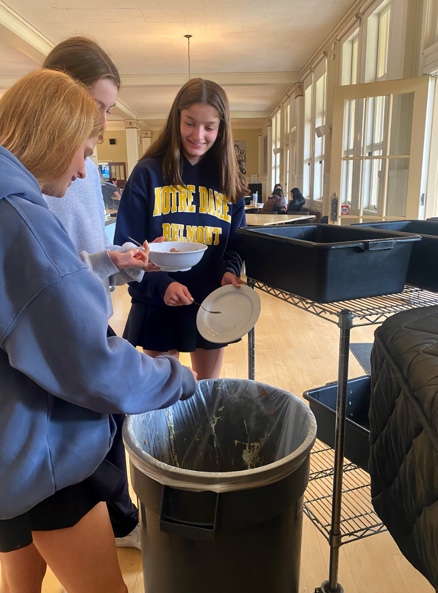Focusing on STEM too much limits students

Over the past several years, NDB has put a lot of attention and support toward bringing STEM – science, technology, engineering, and math – to campus in its classes, extracurricular activities, and facilities. It is planning to implement a STEM pathway and renovate its science classrooms in the near future. That is good news for those who want to pursue a career in those disciplines. But, what about those who do not?
Other careers, such as business and the creative arts, are popular college majors and high school elective classes. But, the classes that help students try out different things, find their passions, and prepare them for college and career are not very well represented in the school’s curriculum. Yes, visual and performing arts classes are available, but there are only a few. NDB’s Creative Writing and the Tri-School Program’s Architecture and Business classes held at Serra HS used to be available, but they were cut during the last few years. This blindsided students who are interested in those fields, leaving them unsure about what to do about exploring their interests and declaring their majors.
“I do think there’s more of an opportunity to take more classes in the maths and sciences,” Michelle Bizeau, the new Associate Head of School for Wellness and Empowerment, said. “If one is in the Humanities, there’s nothing further than those basic core classes.” As the chair of the counseling department, she acknowledges the limitations for students not interested in STEM.
Colleges like to read applications of potential students who show more than just a basic interest in their major. They like to see core and elective classes, clubs and other extracurricular activities, community service, and other things that reflect their future career. But, because of our school’s course offerings, some NDB students are forced to fend for themselves.
“Architecture at Serra set me up for opportunities outside of school, like the interior design internship I did over [the] summer,” senior Kate Rose Keighran says. “I worked with [celebrity interior designer] Kendall Wilkinson, which was one of the best opportunities I have ever gotten. There is no way I could have succeeded if I had not taken the class.”
Business is another popular interest among NDB seniors, but that Tri-School class was canceled a few years ago. For many students, this came as a shock; they thought that this class was going to help kickstart their business plans and get them started in their major.
NDB students are forced to explore their interests elsewhere and find other ways to prove them on their college applications. Senior Zoe Spencer spent the summer before her junior year at Emory University in Atlanta, Georgia, taking a two-week-long program on business. She then spent part of this summer at Cañada College, taking an advertising and marketing class.
“There were no other ways to show colleges I was interested in business; this was the only option I had,” she said.
There are countless programs offered to STEM students outside of the world of NDB, including science classes, programs, and internships. Many advertisements to Stanford Medicine come to mind, but a minimal amount for any opportunities outside of that.
“We need to have many more electives and widespread opportunities for students because not everyone will want to take those advanced level classes in math and science,” Bizeau believes. “It is incredibly important that we’re serving all students’ interests because, once they leave here, they get to decide [what to study], and it would be incredibly nice if we were able to appropriately prepare them to get into these top-level schools that do offer a variety of widespread majors.”
Dr. Linda Kern, the new Associate Head of School for Curriculum and Instruction, was unaware of student issues with the STEM-focused curriculum. Although it may seem like it rules the school, she wants to reassure us that the course catalog is in our favor.
She believes “a student-led survey about the kinds of classes that girls would like more of would be really helpful… This is the time of year when we are talking with department chairs and the administration about what the course catalog will look like for next year.”
STEM should not have this much emphasis on the curriculum, and the school should do more to accommodate other areas of interest. While female involvement in STEM should be encouraged due to the lack of women in those fields, it should not be prioritized at the expense of other subjects. Girls and women should not feel like their interests are less important than anyone else’s.
Bianca Lopez is a the Senior Class President at Notre Dame High School. She is planning to attend a four-year college and get a double major in Business...




